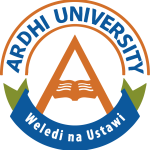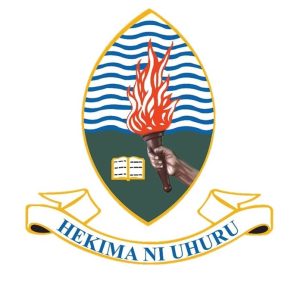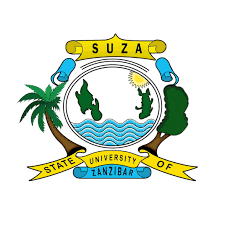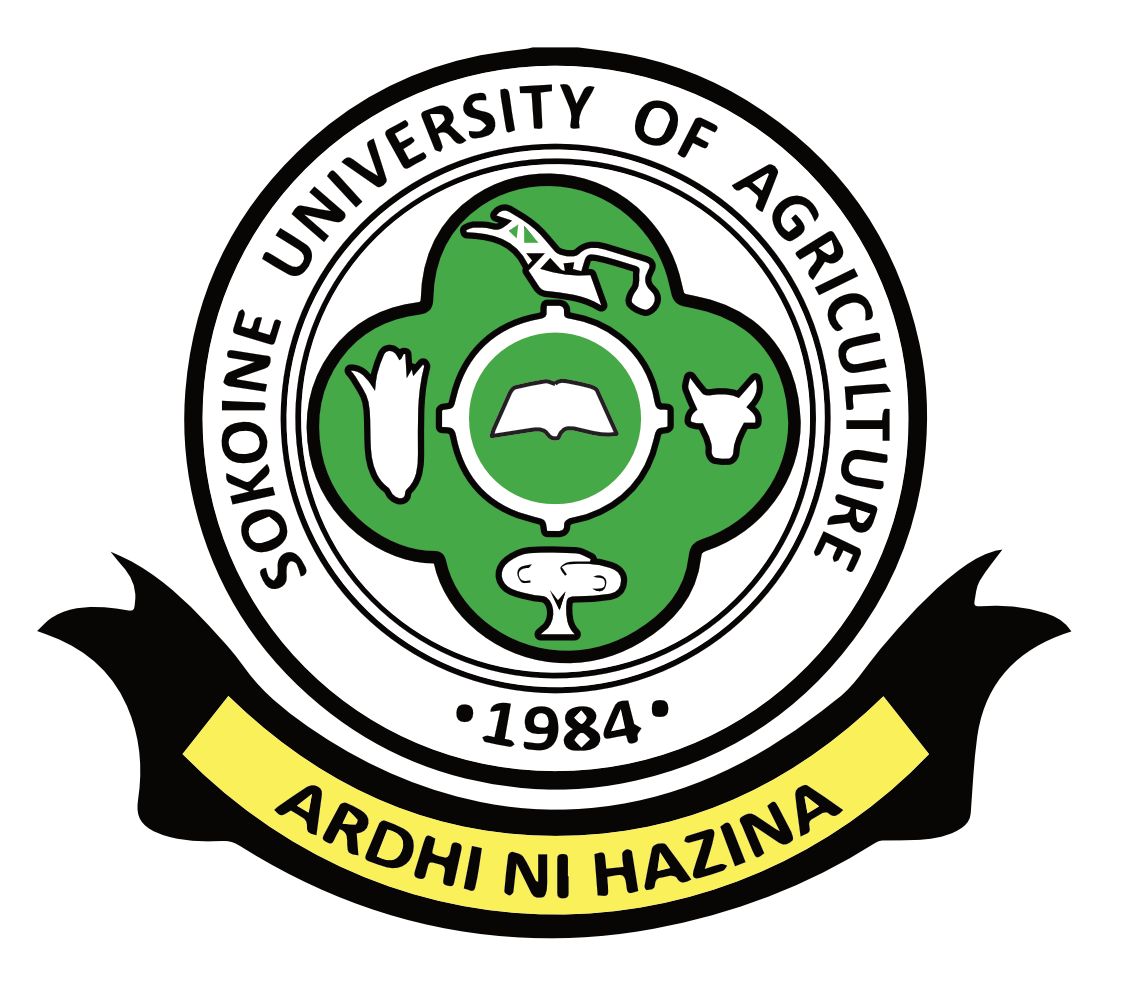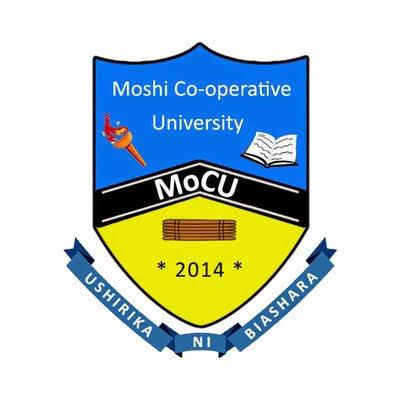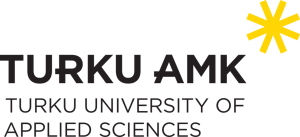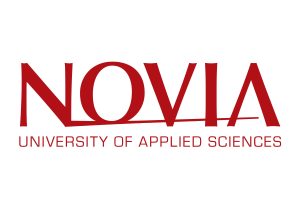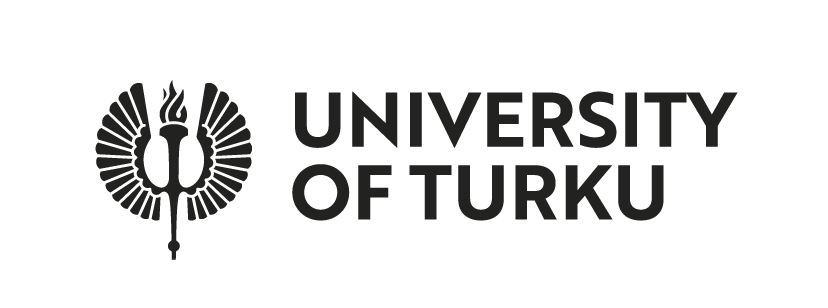Multi-Competence Learning (MCL) playbook
Program and concepts
The MCL program is divided into five phases: 1) Foundation, 2) Problem Definition, 3) Solution Concept, 4) Solution Validation, and 5) Demo & Dissemination. The phases include different MCL characteristics and the usual schedules of the 5-week program and 8-week program.
2) Problem definition
The primary objective of the Problem Definition phase is for the student teams to identify and define an actionable problem (AP). An actionable problem is a narrow and concrete “sub-problem” within the scope of the Umbrella Challenge. The problem should be worth solving from both social and ecological perspectives. Additionally, it should be concrete and actionable enough for the student team to be able to work on it during the MCL program.
The student teams will identify their actionable problem themselves. The scope is to actively seek out multiple potential problems and analyse them thoroughly to understand the positive and negative impacts that would arise if the problems were solved. Subsequently, they should choose the most significant problem and conduct a brief feasibility study within the context of the MCL program. This involves assessing whether the problem is actionable given the team's skills, resources, and available time.
3) Solution concept
The starting point of the Solution Concept phase is that the student teams have chosen one actionable problem (AP) that is a specific problem worth solving, actionable, and feasible within the context of the MCL program. The objectives of this phase can be summarised into three parts:
- First, the team needs to envision a comprehensive solution idea (SI) that effectively addresses the AP in a sustainable manner.
- Second, the team must identify critical unresolved issues within the SI that are essential for its feasibility and practicality.
- Thirdly, the team needs to develop a concrete plan to validate some of these unresolved issues during the next phase (solution validation) of the MCL.
The full SI may be ambitious and larger in scope than what can be achieved within the timeframe of the MCL program. However, the key requirement is that it describes a working, sustainable SI for the AP. Instead of implementing the entire full SI, the student teams can focus on demonstrating a few critical parts through prototypes or validating aspects of the SI through experiments.
4) Solution validation
Solution Validation phase relies on the results of the previous phases: a clearly defined and analysed problem (the Actionable Problem), a full solution idea for the problem (the SolutionIdea Canvas), and a validation plan for addressing some of the critical open issues within that solution idea. The primary objective of this phase is to validate the identified open issues in the solution idea/concept.
This validation process often involves building a prototype of a specific part of the solution, conducting experiments to clarify uncertain aspects, or conducting investigations to gain further insights into the solution or problem. Regardless of the approach chosen for validating the solution idea, the outcome should be something tangible that can be demonstrated to stakeholders during the final phase of the MCL program. The demonstration aims to provide a concrete understanding of how the solution would work, showcase its impact, or offer a tangible example that fosters stakeholder commitment.
5) Demonstration and dissemination
Demonstration & Dissemination phase is the last phase of the MCL program and its content and modalities are planned very locally so the workflow of this phase can vary greatly. The main aim of this phase is to wrap up the whole program. Student teams will finalise all deliverables and create presentations and events around the MCL program closing and the project outputs. In optimal scenarios, successful projects, solutions & prototypes will carry on after the MCL program by attracting interest of stakeholder groups and creating business opportunities for the student teams.
Learning objectives
After the completion of the MCL program, students have achieved several competences:
Demonstrate expertise in conceptualising societal spatial problems and employing geospatial data and digital technologies to identify solutions
Gained firsthand experience in addressing complex problems by breaking them down into project work with distinct sub-goals, milestones, and deliverables
Have acquired practical expertise in exploring, employing, and evaluating geospatial data and digital technologies to address diverse challenges and meet the specific requirements of clients and end-users
Can effectively lead and manage team projects, assigning roles and responsibilities to meet project deliverables through persistent effort
Have enhanced confidence in collaborating within multi-skilled teams and proficiently analyse, communicate progress, and convey performance outcomes to external stakeholders
Key concepts
21st century skills
MCL phase: All
Digitalization and globalization have created drastic changes on which type of skills the newly graduated students are expected to have when they enter the working life. Today's information age has created different skill needs compared to our ancestors. These new skills are often referred to as the 21st century skills.
The 21st century skills are often divided into three categories: 1) learning skills, 2) life skills, and 3) literacy skills. These categories include skills such as critical thinking, creativity, collaboration, communication, information literacy, media literacy, technology literacy, flexibility, leadership, initiative, productivity, teamworking, and social skills. All the 21st century skills are easily transferred to different jobs and working places, once the person has first acquired the skills.
When it comes to MCL, the program is hoping to teach students these 21st century skills so that the students feel like their working life capacities are heightened after the program. Especially critical thinking, creativity, collaboration, and communication are components that the MCL program will enhance.
Actionable problem
MCL phase: Problem definition
When the student teams are familiar with the MCL umbrella challenge from multiple perspectives, the groups proceed toward identifying smaller location-related societal actionable problems within the overarching umbrella challenge. An actionable problem is a narrow and concrete “sub-problem” which is related to the larger umbrella challenge topic.
At the beginning of the actionable problem definition, each team defines multiple actionable problem alternatives, by exploring and ideating the umbrella challenge based on the information the students have received. After this the teams analyze and further choose one actionable problem with which they want to proceed to the next stage of the process.
The whole actionable problem process is backed up by analyzing the actionable problem feasibility with the actionable problem canvas -tool. In MCL the finally selected, single actionable problem acts as a project topic for the team during the rest of the program.
Actionable problem canvas
MCL phase: Problem defintion
An actionable problem canvas is a tool to analyze actionable problem ideas and their feasibility. The actionable problem canvas has three different sections that are colored blue, green, and red.
The blue section of the canvas focuses on problem ideation - problem description, problem owner(s) and stakeholders, and problem impact.
The green section of the canvas focuses on problem analysis - the problem's relation to the umbrella challenge, when and where the problem occurs (geospatial context), and the problem sustainability context.
The red section of the canvas focuses on problem feasibility - why the problem hasn’t been solved yet, what are the technical capabilities needed to solve the problem, is the data available to use in solving the problem, and are there other support needed in solving the problem.
Further information and instructions for the usage of the actionable problem canvas can be found in the MCL Actionable Problem Canvas Introduction -slides. The main aim of the template is to guide the work of inventing different actionable problem alternatives and finally choosing one actionable problem that the team will use in the MCL. The actionable problem canvas is not meant to be a static fill-at-once template and thus the teams may need to go back to the canvas multiple times during the process to change their plans and opinions after they receive more information regarding the umbrella challenge and their actionable problems.
Challenge based learning
MCL phase: All
We are constantly surrounded by different types of challenges: big, small, local, regional, global, etc. Worklife is changing more and more towards project type of work, where the focus is to solve different types of challenges in (often multidisciplinary) expert teams. In challenge-based learning (CBL), the learning process is organized around real-life challenges provided by external partners and carried out in student- and teacher-led multi-disciplinary teams. CBL-based learning improves the skills of challenge and problem identification and innovation. MCL is a CBL-based approach.
Climate Risk Database
MCL phase: All
CRD refers to Climate Risk Database which is a digital geospatial data repository that supports research, education, and disaster-risk management practices. The database has been developed under the Resilience Academy program and thus includes especially Tanzania related datasets.
Community day
MCL phase: Problem definition
During this day, the teams usually visit umbrella challenge relevant communities to gather information on local perspectives. The main aim of the day is to get familiar with the community aspects of the problem and to gain grass root level insights into the issues. Often it is so that the big umbrella challenge may affect communities, people, and families in many different ways. During this day the student teams get to interview community members so that they can gain different point-of-views to the umbrella challenge. This is expected to help the teams in their actionable problem and solution idea development. This day can be combined with the field day. The execution of this day is planned locally, so there may be very many different variations of community day.
Demo and dissemination phase
MCL phase: Demo and dissemination
The fifth and last phase of the MCL. During this phase, the participants prepare for the final presentations and demos which showcase their solutions. This phase may include elements from demo and solution testing, sharing open data, and pitching depending on the execution of the MCL program.
Demo day
MCL phase: Demo and dissemination
The demo day is usually arranged on the final day of the MCL campaign. Often students present their final solution to a broader audience during the demo day. This day may also include making the team's digital data sets and products shareable for the broader audience and/or digital geospatial data festival. The execution of this day is planned locally, so there may be different variations to how the demo day is done at your local university.
DigiCampus
MCL phase: All
DigiCampus is a digital cloud e-learning environment for universities to support flexible learning opportunities. For each MCL campaign, there is a university-specific DigiCampus learning area. MCL campaign schedules, content, submissions, and feedback questionnaires are all integrated and included in these DigiCampus campaign learning areas. Also, a variety of open learning materials and mini-MOOCs are openly available in DigiCampus. These learning materials have been developed and gathered to support the MCL student teams during the MCL campaigns.
Experimentation day
MCL phase: Problem definition
Usually, the teams have identified one solution idea before the experimentation day starts. Additionally, the teams have most likely seen the solution and tool expos prior to experimentation day.
This means that the main idea of experimentation day is to experiment with different types of data and tools available to dive deeper into the solution ideas of the teams. This deep dive is done by doing a feasibility analysis of the existing solution ideas. This means that the teams run experiments, investigate, learn, interview, etc. in order to mitigate the uncertainties, unknowns, and risks that are identified in the solution ideas.
Expo/exploration (solution, data and tool)
MCL phase: Problem definition
The MCL program includes solution and tool expos. The expo can be divided into several days or it can be a one-day expo, depending on the local customization of the MCL program. The main aim of this day/these days is to showcase different geospatial and IT solutions and tools for the student teams to grasp a better understanding of what geospatial IT solutions already exist and which problems those solutions have solved. In contrast, the geospatial IT tools are present in the expo for the student teams to get a better understanding of what are the possible tools they may use for their MCL process.
Feasibility analysis
MCL phase: Solution concept
Feasibility analysis refers to a solution idea feasibility analysis and validation (see also Experimentation Day). The student teams e.g. learn, run experiments, investigate, and implement interviews in order to mitigate the uncertainties, unknowns, and risks identified in each solution idea.
Note! Feasibility is also analyzed during the actionable problem identification and analysis with an actionable problem canvas.
Field day
MCL phase: Problem definition
This day is planned locally so there may be many interpretations on how to manage this day and what is done during this day. For example, the number of field days in one's MCL campaign can differ. However, the main aim of this day is to visit the physical sites on which the umbrella challenge can be seen, felt, experienced, and so on. This means that the teams are encouraged to make observations in the field: taking photos, collecting evidence, collecting data (geospatial data, interviews), and so on. This way the teams have a greater sense of understanding the umbrella challenge and are thus hopefully able to understand better how to create actionable problems and solution ideas. This day can be combined with the community day.
Foundation phase
MCL phase: Foundation
The first phase of the MCL program. During this phase, the focus is on understanding the MCL program, forming multidisciplinary teams, and learning about the umbrella challenge as a complex and multifaceted socio-ecological challenge in society. Exploring different dimensions of the umbrella challenge and getting familiar with the problem owners and their perspectives on the umbrella challenge are at the heart of this phase. After this phase, the students have been divided into teams in which they will work for the rest of the program. Additionally, the teams are aware of the MCL program structure and aims and the umbrella challenge has been introduced to them in depth.
GeoICT4e
MCL phase: All
Geospatial-ICT technologies are making an impact leap due to globally accessible modern solutions. We are witnessing a massive growth of innovations built on open digital geospatial data through affordable mobile technologies, tackling major challenges, such as rapid urbanization, degradation of marine and land environments, and humanitarian crises. The number of experts needed is growing, but also the required skills, capabilities, and attitudes are changing. New-generation graduates need to be competent with novel technologies, but equally, they need to master the interface between technologies’ potential and societies’ emerging needs, working in a multi-stakeholder environment and creating innovative and impact-based solutions.
GeoICT4e is a project that tries to create social innovations in Geo-ICT education at Tanzanian higher education institutions for improved employability. The main outcome of GeoICT4e is that the Tanzanian universities have improved management and teaching capacities in impact-driven and socially innovative geospatial and ICT education, leading to graduates’ better employment.
The project includes three Finnish universities (University of Turku, Turku University of Applied Sciences, Novia University of Applied Science) and five Tanzanian universities (Ardhi University, Moshi Co-Operative University, Sokoin University of Agriculture, State University of Zanzibar, University of Dar es Salaam) and is funded by the Ministry for Foreign Affairs of Finland and administered by the Finnish National Agency for Education.
Geonode
MCL phase: All
Geonode is a UTU (University of Turku) geospatial data service that provides an open repository for geospatial research data sharing. Here you can discover and download geospatial layers, upload and share your own or research group’s data, create maps, and get inspired by reading stories from our community. UTU geospatial data service is part of the University of Turku data infrastructure.
Geospatial data
MCL phase: All
Geospatial data is information that describes objects, features, and phenomena with a geographical location. Geospatial data combines location and attribute (e.g. descriptive, timing, quantitative) information. In the MCL campaign the socio-ecological challenges are always existing and happening somewhere - at specific locations and at specific times. Therefore, during MCL campaigns the umbrella challenges and actionable problems can be also expressed and observed by using geospatial data. The goal of the campaign is to solve actionable problems by using modern geospatial and ICT methods and technologies.
Human-Nature System
See the term 'Socio-Ecological System' for further information.
Learning nugget
MCL phase: Foundation
A learning nugget is a small learning activity, which can vary in length and in the defined learning goal, but is usually much shorter than learning sessions in contact teaching. For example, a mini-lecture can be as short as 5 minutes and normally doesn’t exceed 25-30 minutes. One mini-MOOC course consists of multiple learning nuggets.
Mentor
MCL phase: All
Mentors are at the heart of the MCL program. Their responsibility is to support the teams throughout the MCL learning and development process. The main aim of the MCL mentors is to work with the teams to help them achieve the teams' goals. This is done by helping the individuals to identify their strengths and weaknesses, setting goals, and developing strategies for archiving these goals. If a team is in doubt, the mentors are there for your support and to help you if you feel stuck.
Mentor manual
MCL phase: All
The MCL mentor manual is a set of instructions for assisting mentors during the MCL process. This is the tips and tricks of the mentors. The mentor manual is an MCL campaign guidebook, including all descriptions and links to daily activities, related materials, and assignments. The mentor's role is to plan, prepare, modify, and utilize the overall MCL design and materials for local university-level campaign implementation.
Mini-MOOC
MCL phase: Foundation
MOOC refers to a “Massive Open Online Course”. Mini-MOOC is a smaller entity open online course. The easiest is to think mini-MOOCs as small online course that is open and available to everyone. Mini-MOOCs can be as small as 0,5 student credit points (ECTS). Each mini-MOOC consists of multiple learning activities which are also called learning nuggets.
Multi-Competence Learning
MCL phase: All
Multi-Competence Learning (MCL) methodology is following a challenge-based learning pedagogy (CBL), where students work in multidisciplinary teams, actively with their peers, mentors, and stakeholders. Student teams identify complex location-related societal problems, and together as a team act towards sustainable development by designing new digital data and technology solutions for the end users. The focus is on building new digital, evidence-driven solutions, which can potentially have sustainability impacts for the users of the solution.
The MCL is expected to enhance especially the 21st-century skills of the participants. The individuals may gain valuable experiences when it comes to working life skills: team working, communication, critical thinking, innovativeness, ... and so on. The usual MCL implementation is either a 5-week program or an 8-week program. The timing depends on the needs of the local universities and their schedules.
Problem definition phase
MCL phase: Problem definition
The second phase of the MCL process. The aim of this phase is to narrow down the big umbrella challenge into several actionable problems, which can be solved by digital geospatial data and technologies. This process is supported by an actionable problem canvas with which the teams will work during this phase. At the end of this phase, the program participants have identified one actionable problem, which they start solving in the next phase.
Prototype
MCL phase: Solution validation
A prototype is an early sample, model, or release of a product built to test a concept or process. The teams may develop an actual prototype during the fourth phase of the MCL process. The prototype will be developed based on the team's selected solution idea. The student groups may build a prototype of their solution by using digital data and technologies identified during the previous phase of the MCL campaign. At the end of the fourth phase student teams may have completed their solution prototypes.
Society-Nature System
See the term 'Socio-Ecological System' for further information.
Socio-Ecological System
MCL phase: All
This term refers to the interplay of humans and nature: how do these two work together or against one another. Most socio-ecological systems are based on the concept that humans are a part of nature and not separate of it. Socio-ecological systems are usually very complex and delimited by spatial and temporal scales. In the present world, the socio-ecological system is already in action in almost every spatial and temporal scale possible, and thus it is important to keep these interactions in mind when analyzing matters from different perspectives.
The socio-ecological system is basically built on two pillars that are in constant interaction: the human and nature. If the other pillar is somehow modified, the other pillar will also be affected. For example, if nature produces goods such as fire food, humans may use those fire woods to heat up their houses. When humans use firewood to heat up their houses, nature is affected by the emission that comes with burning the fire food. This will in the long run affect the nature pillar, for example by decreasing the amount of firewood available yearly. This will ultimately affect the human pillar of the system.
This socio-ecological system is being introduced in the MCL in the form of system maps.
NOTE! The terms 'Human-Nature System' and 'Society-Nature System' are synonyms for the word socio-ecological system and refer to the same matter.
Solution concept phase
MCL phase: Problem definition
The third phase of the MCL program. During this phase, participants start generating different solution ideas for their actionable problem. For that, participants get exposed to geospatial data and different digital tools, software, and technologies that are expected to help them to gain ideas on possibilities in building solutions. This phase includes testing how to use the tools, generating several solution candidates, and validating their feasibility in order to mitigate the uncertainties, unknowns, and risks. At the end of this phase, the participants have selected and further refined a single solution idea that they will be working on for the rest of the program.
Solution idea
MCL phase: Solution concept
Solution ideas are the execution solutions to the actionable problem. After the problem definition, the student teams start to generate solution ideas that are based on their selected and final actionable problem. Each student team will generate several solution idea alternatives with the solution idea canvas. Only one solution idea will be selected at the end of the phase and the teams will work on that solution idea for the rest of the MCL program.
Solution idea canvas
MCL phase: Solution concept
The solution idea canvas is a tool to analyze the solution ideas and their feasibility. The solution idea canvas has three different sections that are colored blue, green, and red.
The blue section of the canvas focuses on the solution concept - solution description, solution owner(s) and stakeholders, and solution impact.
The green section of the canvas focuses on solution analysis - the solution continuation potential, the solution linkages to sustainable development, and the data and technology related to the solution idea.
The red section of the canvas focuses on solution validation - what are the most important open issues in the solution, what open issues will help the teams to validate the idea and why, what the team is going to build and test, and what are the team's needs for validation.
Further information and instructions for the usage of the solution idea canvas can be found in the MCL Solution Idea Canvas Introduction -slides. The main aim of the template is to guide the work of inventing different solution idea alternatives and finally choosing one solution idea that the team will use in the MCL. The solution idea canvas is not meant to be a static fill-at-once template and thus the teams may need to go back to the canvas multiple times during the process to change their plans and opinions after they receive more information during the MCL process.
Solution validation phase
MCL phase: Solution validation
The fourth phase of the MCL program. During this phase, the participants work intensively and at their own pace to build a prototype of their solution idea using digital data and technologies, which have been identified during the previous phase. Learning new tools and techniques and diving deep into the details of the solution are at the heart of this phase. At the end of this phase, the participants have hopefully completed their prototype.
Stakeholder
MCL phase: All
In MCL, a stakeholder is a person or group that has an interest in the umbrella challenge and the actionable problems. This means that the stakeholders can be for example individual and normal people, government, local communities, non-governmental organizations, non-profit organizations, start-up hubs, universities, businesses, etc. The mentors have identified key stakeholders regarding the umbrella challenge. Additionally, the students try to identify key stakeholders for their actionable problem alternatives with the help of the actionable problem canvas. Stakeholders who are connected to the actionable problems can be instances that are the problem owners, that have agency or interest in the problem, or that benefit directly or indirectly if the problem is solved. Usually, the more variety in the stakeholder segment, the better the idea generation, the more feedback, and the better actionable problems and solution ideas.
Sustainable Development Goals
MCL phase: All
Sustainable Development Goals (SDGs) were adopted by the United Nations (UN) in 2015. The SDGs provide seventeen interlinked goals that serve as a shared blueprint for peace and prosperity for people and the planet. The main aim of the SDGs is to transform our world for the better. This is done through the different goals and their indicators. The goals refer to the different levels of sustainability: the economic, social, environmental/ecological, and cultural sustainability that all need to be taken into consideration when planning for a better future.
System map
MCL phase: Foundation
A visual map trying to explain the umbrella challenge related bigger picture and the socio-ecological system affected by the umbrella challenge. Usually, both human (socio) and nature (ecological) activities and their interaction with the umbrella challenge are seen on the system map.
Systems thinking
MCL phase: All
Systems thinking is a way of making sense and mapping complex systems. This approach allows to identify parts and relationships within a system. Systems thinking should be included in any analytical process to prevent excessive focus on the details. System thinking is usually introduced to the students are the early stages of the MCL process and usually in the form of a system map.
Umbrella challenge
MCL phase: All
In every MCL program, each participating higher education institute has its own predefined overarching challenge/problem which is also referred to as the umbrella challenge. This socio-ecological challenge has been recognized as a regional real-life problem with close linkages to sustainable development and climate issues. This means that the umbrella challenge is a local challenge that occurs in space and time at a designated area. During the MCL programs, student teams will identify smaller more specific actionable problems within the overarching umbrella challenge. Each team then aims to solve these more specific actionable problems by using geospatial and ICT-related methodology and technology, while working intensively in a multidisciplinary group.
Validation (idea, prototype)
MCL phase: Solution validation
Validation refers to gathering evidence around ideas through experimentation to make fast and informed decisions. The purpose is to expose ideas or prototypes to the practicality of the real world so that you get to know whether your idea or prototype will work or not. The validation reduces different risks and speeds up processes so that one does not use too much time defining matters that may not work in real life.
Webropol survey
MCL phase: All
Webropol is an online surveying and reporting tool. During the MCL campaign, each student team and mentor submit a weekly questionnaire every Friday of the MCL. The survey information is used by the project universities for campaign progress monitoring and further development of MCL design. So please, if you have any ideas on how the MCL process and workflow should be developed, the weekly Friday Webropol surveys are a great place to have your say!
